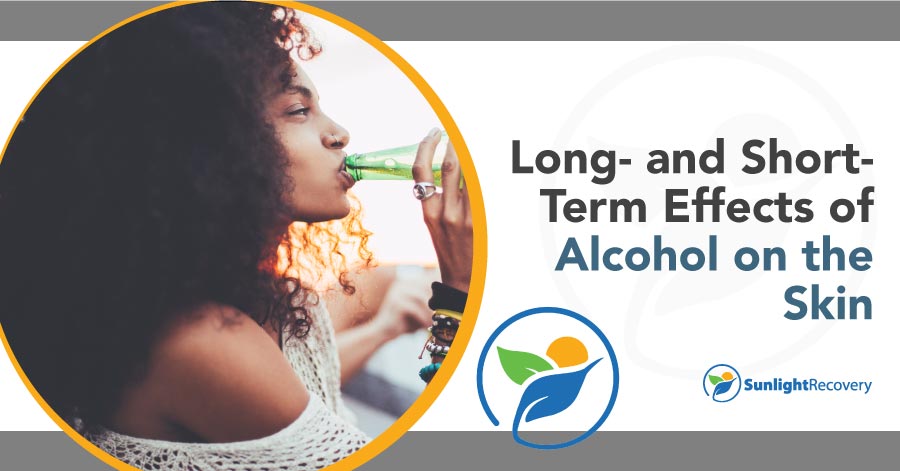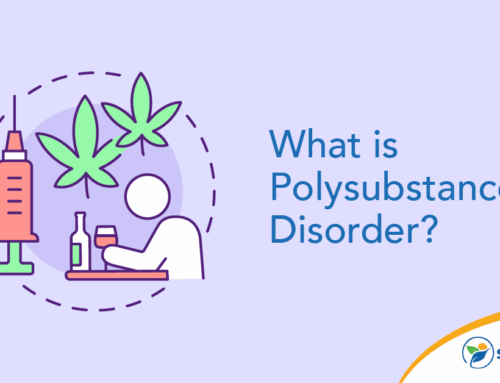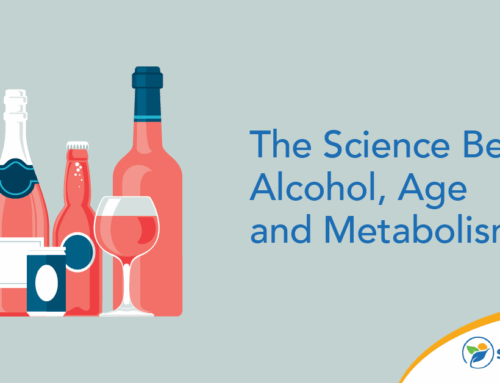Drinking can sometimes lead to flushed skin, causing redness in the face. We’re all probably aware of the red nose associated with alcohol, which can seem harmless. After all, the color is expected to fade the next morning when the alcohol is out of your system. This may be true for people who only have the occasional drink. But for excessive drinkers, the correlation between alcohol and skin changes may be more dangerous.
Take a look at the long- and short-term effects alcohol has on skin and why redness and other symptoms may occur.
What Is the Relationship Between Alcohol and Skin Changes?
Alcohol’s effect on skin varies based on how much you drink. Excessive drinking can increase the risk of developing alcohol use disorder (AUD). AUD is the result of being addicted to alcohol, which can happen when a person doesn’t control their intake. According to the National Institute on Alcohol Abuse and Alcoholism, heavy alcohol use is defined as consuming four or more drinks per day for men and three or more drinks per day for women.
To reduce the risk of alcohol-related harm, experts recommend that women stick to a limit of one drink or less per day while men limit their consumption to two or fewer drinks per day. Limiting your alcohol consumption also reduces harm inflicted on the skin. One reason alcohol is bad for your skin is that it can aggravate skin conditions, such as rosacea and psoriasis.
Rosacea is a chronic skin condition that leads to skin irritation, flushing and facial pimples. Since alcohol causes facial flushing, it can worsen rosacea symptoms or increase a person’s chance of developing the condition. Psoriasis is an autoimmune inflammatory condition that causes thick, scaly patches. Drinking large quantities of alcohol can increase a person’s risk of developing the condition. Since alcohol weakens the immune system, it can also make psoriasis treatment-resistant.
This isn’t the only link between alcohol and skin changes. There are many ways alcohol can cause short- or long-term effects on skin.
Short-Term Effects of Alcohol on the Skin
Short-term effects can occur after just one night of drinking, even if a person doesn’t have AUD. The most common alcohol-related causes that affect your skin include dehydration, sleep disturbance and flushing.
Dehydration
Alcohol causes skin and the body to lose more fluid because it’s a diuretic. Diuretics push the body to get rid of extra fluids or salts, which leads to creating and releasing more urine. This effect is damaging because it can purge the body of vital nutrients or vitamins and cause dehydration.
Dehydration affects the skin by causing:
- Sunken eyes
- Dry lips
- Dry skin
- Decreased elasticity
To reduce the risk of dehydration, drink water in between alcoholic drinks.
Sleep Disturbance
Alcohol can cause drowsiness, which helps you fall asleep quicker at night. However, that sleep may be fragmented and can lead to waking up earlier and more often. If drinking continues throughout the night, sleep may not happen at all. Even just one or two sleepless nights can cause temporary alcoholic face changes to the skin, such as:
- Pale skin
- Dull complexion
- Dark circles under the eyes
- Wrinkles or fine lines
Refraining from alcohol consumption right before bed or late in the night can help prevent this.
Flushing
Alcohol causes a release of histamines, which leads to blood vessels dilating under the skin. This can cause a flushed or inflamed complexion and directly contributes to flare-ups in skin conditions such as rosacea. If you’re wondering what alcohol does to your face due to flushing, side effects include:
- Redness
- Small red bumps
- Broken blood vessels
- Pus-filled facial spots
Long-Term Effects of Alcohol on the Skin
If a person regularly consumes alcohol, the effect between alcohol and skin changes can be much more severe. Short-term effects, such as flushing and dry skin, are likely to become more serious issues. Drinking can also increase the risk of skin cancer and infections or result in skin changes from alcoholic liver disease.
Skin Cancer
Since alcohol weakens the immune system, the body’s natural defense mechanisms against diseases can also weaken. According to the National Library of Medicine, alcohol consumption can also increase the damaging effects of ultraviolet light on a person’s skin, causing even more harm.
Skin Infections
Heavy drinkers are more likely to experience fungal and bacterial infections because alcohol decreases the body’s ability to absorb nutrients. Skin infections can also occur from bodily injury, which is more likely to occur when a person is drinking.
Alcoholic Liver Disease
Prolonged alcohol consumption can result in skin changes from alcoholic liver disease. This can cause serious conditions such as hepatitis or cirrhosis. Hepatitis is an inflammatory liver condition that occurs when more alcohol is consumed than the liver can process. Cirrhosis is a progressive disease that causes a scar tissue buildup, resulting in the replacement of healthy liver cells. These conditions can cause skin changes such as:
- Dark skin around the eyes
- Jaundice, or yellowing of the skin
- Itchy skin
- Telangiectasias, which are small, visible blood cells covering the neck, face and chest
Will These Changes Reverse If You Stop Drinking?
For short-term effects, such as alcohol dry skin, redness or duller complexion caused by dehydration and disrupted sleep, a solution as simple as drinking more water can reverse the changes. If you or a loved one is suffering from long-term effects due to excessive drinking, more extensive treatment may be necessary.
The best way to prevent or treat long-term skin changes is to stop drinking. Treatment options are available to support a person struggling with alcohol addiction, including detox, residential programs, outpatient programs, medications and peer support groups.
While quitting alcohol can help clear many skin conditions, some may require the help of medication or a dermatologist to fully heal. Over-the-counter moisturizing creams can also help treat symptoms such as dry skin.
Find Support to End Excessive Alcohol Consumption
If you or a loved one is struggling to stop drinking on your own, you’re not alone. Reach out for help by calling Sunlight Recovery at (888) 402-3647. Our trained counselors are available 24/7 to help you take the first steps toward a healthier, sober life. Start your journey to recovery today.







